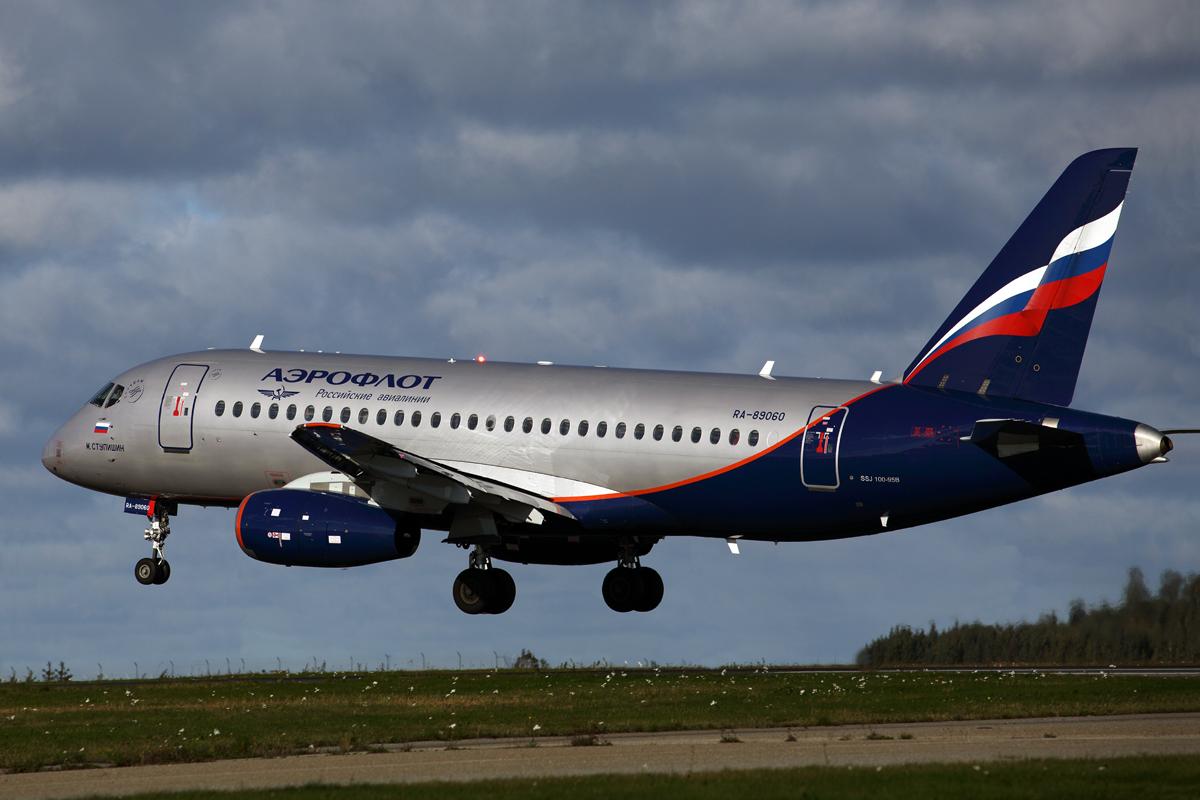
The board of Russia’s Aeroflot Group is expected to adopt a new strategy on July 16 calling for the parent airline to focus on long-haul operations while the domestic network will be left for the two subsidiaries Pobeda and Rossiya.
The strategy looks to be a compromise between the demands of the airline’s major shareholder—the Russian government—to ensure cheap air travel for the local population, and the plans of Aeroflot’s management to see the airline among the world’s leading premium carriers.
The new strategy dubbed 30/30 was presented by Aeroflot CEO Vitaly Saveliev to Russian Prime Minister Mikhail Mishustin on July 14. He explained that the airline was ready to increase its annual traffic to 130 million passengers by 2023. This is 30 million passengers more as compared to the previous plan, adopted in 2018. “Another 30 [in the strategy’s title] is that we can cut the prices by 30 percent in the economy class,” Saveliev said.
To reach these goals, Aeroflot plans to give most of its domestic networks to its subsidiaries, which will propel LCC Pobeda to become the largest carrier of the group by passenger numbers. Pobeda is now expected to carry 55-65 million people by 2027-2028. “When it takes Aeroflot’s routes, Pobeda will significantly change the situation due to cheaper tickets,” Saveliev said.
The Aeroflot CEO explained that the parent airline as a premium carrier can’t compete with its low-cost subsidiary in terms of turnaround time and fleet utilization time for the narrowbody fleet. Thus, Aeroflot will give Pobeda its 47 Boeing 737-800s so the LCC can operate them more efficiently. The latter now operates 30 aircraft of the type. Saveliev explained that the type’s turnaround time in Pobeda is 25 minutes, which is twice as less than with the parent Aeroflot. The type flies an average 10-11 hours at Aeroflot and 14 hours in Pobeda.
According to a source in the Russian aviation industry, the transfer of Boeing 737s to Pobeda will begin in 2021 as the LCC needs time to reconfigure them from two class 156 seats to a 189-seat mono-class layout. Pobeda is expected to operate 170 aircraft by 2028. This will make its fleet equal to the parent Aeroflot.
Aeroflot Russian Airlines plans to operate mostly long-range aircraft and carry 35-40 million passengers annually by 2027-2028, Saveliev said. “In the new strategy, we want Aeroflot to focus on the long-range flights to make it a five-star airline,” he added, referring to the company’s ambition to achieve Skytrax’s highest rating. “This will lead to significant increase in capitalization, service and prestige for both the airline and the country,” Savliev told Mishustin. Aeroflot now has a Skytrax four-star rating and five stars from APEX.
Aeroflot’s long-range fleet now includes 19 Boeing 777s, 18 Airbus A330s and one A350. The airline planned to get ten more A350s this year to replace its aging A330s and two more 777s. But due to the COVID-19 crisis the airline is in talks to postpone all other aircraft deliveries for summer 2021. “Our goal to take 30 aircraft this year is no longer relevant,” Aeroflot’s deputy CEO for commerce and finance Andrey Chikhanchin said in June.
The source in the Russian industry told Aviation Week that Aeroflot plans nevertheless to keep its A320 family aircraft for selected profitable foreign and domestic routes. The airline now has 74 A320s and 33 A321s. These will be gradually phased out, and the carrier will later switch to A320neos. The airline had earlier discussed the delivery of six A320/321neos this year.
Rossiya, another group subsidiary, will be designated to perform socially important flights to the Far East, Kaliningrad enclave and Crimea at subsidized flat rates. It will also operate the Russia-made aircraft Aeroflot Group has purchased.
Aeroflot Group will also be integrating the Russian-made aircraft it has purchased. According to Saveliev, Rossiya will operate 250 aircraft by 2028 while 235 of them will be Russian-made. This figure apparently includes 150 SuperJet 100 regional jets and 85 MC-21 narrowbody airliners purchased by Aeroflot. It now operates 54 SuperJets while the deliveries of MC-21 are expected to start in 2021. “If MC-21 proves to be a successful aircraft, we will operate it in Aeroflot too,” Saveliev said.
The industry source explained to Aviation Week that the transfer of the first SuperJet from Aeroflot to Rossiya had been initially planned for this year but was postponed to 2021 due to COVID-19. The programs for flight crew transitions have been already approved.
The operation of the Russian-made aircraft is seen by the government as an important social task for Aeroflot, and the airline’s effort hasn’t been left unnoticed. The prime minister confirmed that he has approved a government guarantee for RUB70 billion rubles ($985 million) in loans for the airline.
The Aeroflot Group hit a passenger record in 2019, carrying 60.7 million people. This included 37.2 million people on the parent airline, 11.6 million on Rossiya, 10.3 million on Pobeda and 1.7 million on Far Eastern regional carrier Aurora.
But the group’s operations have been severely hit by the COVID-91 pandemic. The parent airline’s traffic fell by 95% year-over-year in April and by 93% in May due to the closure of international borders and the Russian domestic lockdown. Pobeda had to fully suspend flights in April and May.
Saveliev predicted last week that the group’s domestic traffic could be restored to the 2019 level by December if the local travel restrictions are lifted. “We expect we can recover by 50 percent [and can] carry about 30 million passengers this year,” he said, adding international traffic could reach 80% by the end of the year and be fully restored by late March 2021 if Russia opens its international borders.





